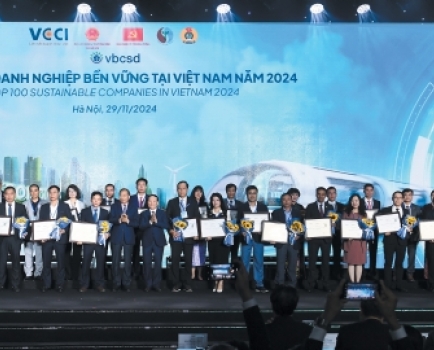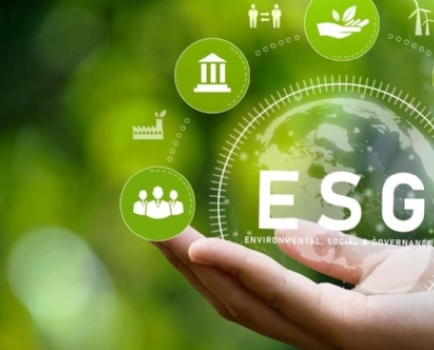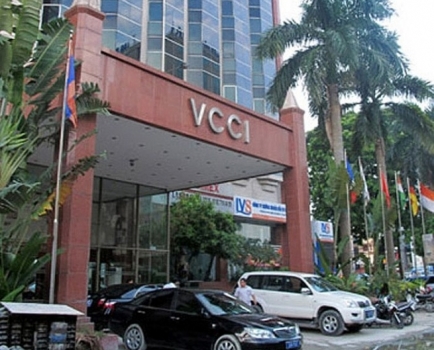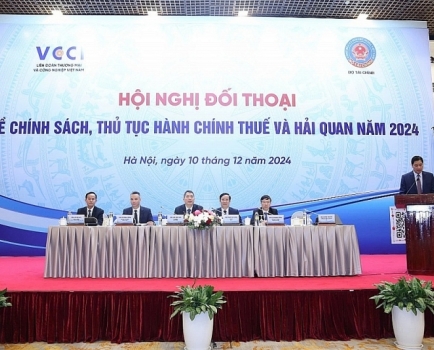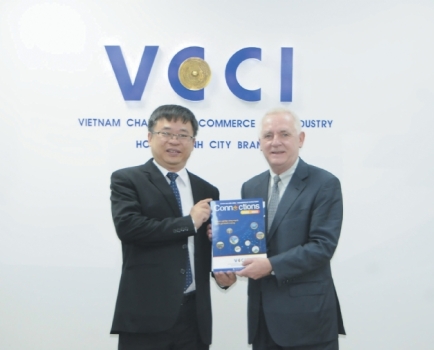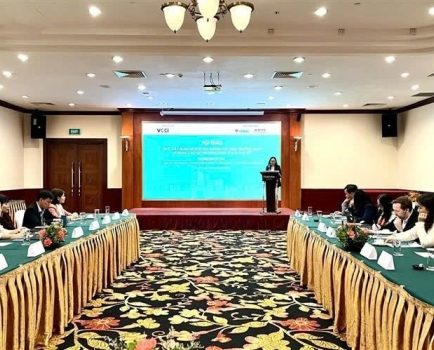Engaging Private Sector in Climate Actions
Thu, 07 Jul 2022 16:38:00 | Print | Email Share:
Climate change has become a major challenge for mankind as it affects all aspects of the global economy, politics, diplomacy and security. Private businesses play an important role in combating climate change.

The private sector has continuously maintained a good growth rate, accounting for 40% of the country’s GDP, employing 85% of the workforce, contributing 34% of corporate income tax, and playing an important part in mobilizing social resources for development investment. In business, most use energy and materials to create products and services.
This is a big source of greenhouse gas emissions (GHG). Therefore, enterprises are subject to reducing GHG under the Law on Environmental Protection 2020.
Speaking at the workshop “Accelerating Business Engagement in the Pathway of Vietnam’s NDC and Net Zero Emission”, Mr. Nguyen Tuan Quang, Deputy Director of the Department of Climate Change (DCC) under the Ministry of Natural Resources and Environment (MONRE), said, climate change has become a major great challenge for mankind as it affects all aspects of the global economy, politics, diplomacy and security.

He said, the Government's Climate Review Report 2022 pointed out two worrisome climate issues: Extreme weather everywhere on earth and the atmosphere that is warming at an unprecedented speed in history, placing humans and natural environment at risk
At the 2021 United Nations Climate Change Conference (COP26) with Parties to UN Framework Convention on Climate Change, Prime Minister Pham Minh Chinh made a commitment to cut net emissions to "zero" by 2050 with the support from the international community. Together with Vietnam, more than 100 countries were committed to net zero emissions by the middle of this century.
“Thus, this is certainly an inevitable development goal of the world, a new rule of the game of global trade and investment. This is a challenge but also an opportunity for Vietnam to foster economic restructuring toward sustainability, green development, improve economic competitiveness and promote trade and investment cooperation for development,” he emphasized.
Mr. Quang said, to make nationally determined contributions (NDC) to the goal of achieving net-zero emissions by 2050, it is essential to engage the entire political system, central and local authorities, organizations and especially responsibly joined business community.
“Currently, the Ministry of Natural Resources and Environment together with relevant ministries and sectors is urgently completing technical regulations and developing detailed instructions in order to support and facilitate businesses to pursue GHG inventories, and build and apply measures to reduce greenhouse gas emissions. Given their importance in the economy, enterprises' GHG emission reduction roadmap must ensure their balance and development," he stressed.

Mr. Nguyen Tien Huy, Director of the Business Office for Sustainable Development, the Vietnam Chamber of Commerce and Industry (VCCI), said that climate change is the most urgent and serious threat. Every year, an estimated 20 million people around the world lose their homes and livelihoods because of its effects.
He informed that Vietnam is one of the most climate-vulnerable countries because most people are living in low-lying coastal areas. If the average temperature increases by 2 degrees Celsius, Vietnam will suffer huge ecological, economic and social damage and up to 40% of the Mekong Delta may be flooded.
Climate change is mainly caused by excessive GHG emissions from socioeconomic development activities, he added. According to a review report on GHG emissions in Ho Chi Minh City, electricity consumption in the city is estimated at about 14 billion kWh by 2030, equivalent to nearly 12 million tons of C02 emissions
“All these risks have led many countries to start calculating emissions produced from the making of a unit of product. In order to export goods, enterprises are forced to calculate emissions and make them lower or equal to the average level of importing countries," he noted.

The Government and National Assembly have drastically implemented and acted more strongly in response to climate change by approving a series of important policies and global commitments, Mr. Huy explained. The most recent are strong commitments to bring Vietnam to net zero emissions by 2050 and diminish methane emissions by 30% by 2030 at COP26.
From the perspective of the business community, Heineken Vietnam has shared good practices it is applying to achieve net-zero emissions by 2050. Ms. Holly Bostock, Corporate Affairs Director at Heineken Vietnam, said, on the sustainable development journey “For a better Vietnam”, the company set an ambition to achieve “zero” net emissions in production by 2025 and be carbon neutral in the entire value chain by 2040. Currently, the company is building appropriate roadmaps, applying the 4Rs strategy: Reduce energy consumption; Replace with renewable energy; Remove emissions through carbon offset projects; Report and refer to industry standards currently implemented at factories and expected to expand throughout the "from input to output" value chain of Heineken Vietnam.
| Since 2021, within the cooperation framework with SPI-NDC Project (JICA), VCCI and Department of Climate Change under Ministry of Natural Resources and Environment launched technical cooperation activities to support the implementation of Nationally Determined Contributions (NDC) in Vietnam. Enabling the business sector to participate in this roadmap is an important stepping stone to foster climate change response. |
By: Huong Ly, Vietnam Business Forum
Source: https://vccinews.com/news/48011/engaging-private-sector-in-climate-actions.html
---------------------------------------------
Same category News :



